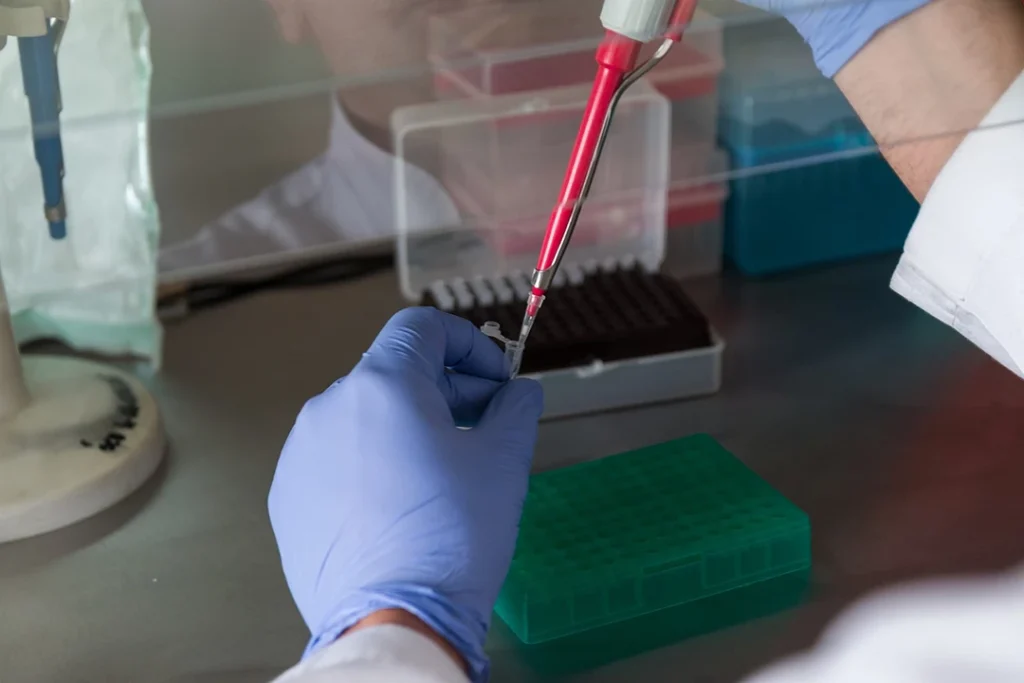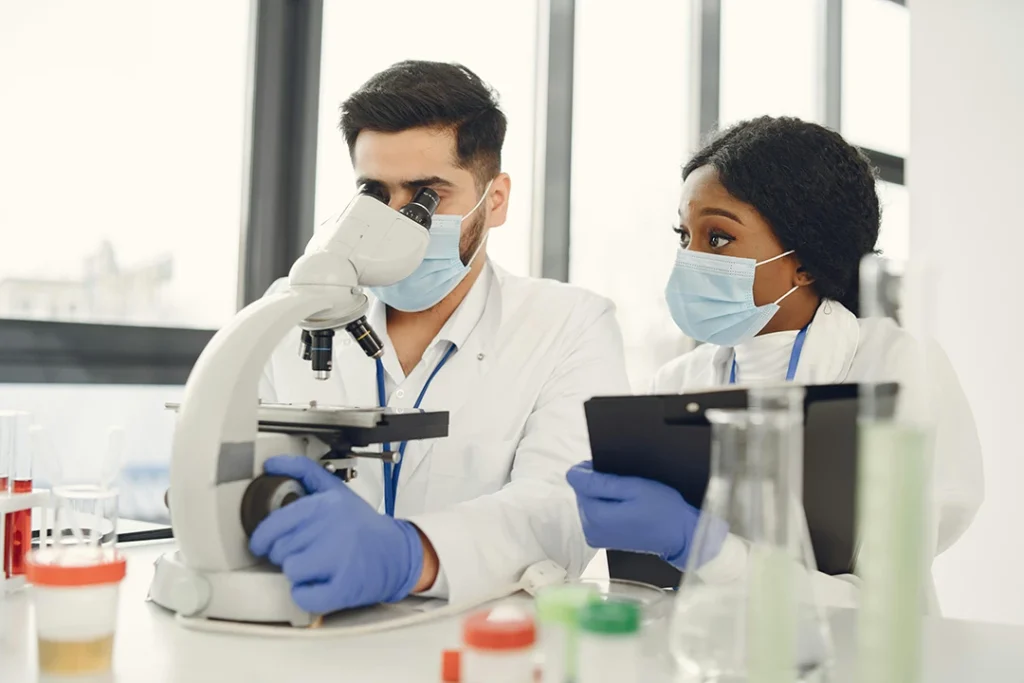How Are STD Tests Done?
September 14, 2025
Understanding the Importance of STD Testing
Talking about sexual health isn’t always easy, but it’s essential. Many people shy away from the topic of sexually transmitted diseases (STDs) because of embarrassment or fear, but the reality is that regular testing is one of the smartest health choices you can make. STDs don’t always come with obvious warning signs. In fact, some infections can stay hidden for months or even years, slowly causing damage to your body. Without testing, you’d never know they were there.
STD testing is about more than just protecting yourself. It’s also about protecting your partner and ensuring the well-being of the community as a whole. By getting tested, you’re breaking the chain of transmission and helping create a healthier environment for everyone.
Why Regular Testing Matters
Think of STD testing as the same kind of preventive care you already do—like visiting the dentist twice a year, getting your blood pressure checked, or scheduling a yearly physical. These routine steps catch potential problems early, and STD testing works the same way. The earlier an infection is found, the easier it usually is to treat.
Another reason regular testing matters is peace of mind. Worrying about “what ifs” can be stressful and distracting. Knowing your status removes that uncertainty and helps you move forward with confidence.
Common Myths About STD Testing
One of the biggest myths out there is that only people with multiple partners need to get tested. That’s not true at all. Even people in monogamous relationships can benefit, since not every infection shows symptoms right away.
Another misconception is that STD testing is painful, complicated, or embarrassing. In reality, most tests are simple, quick, and discreet. A small blood draw, a urine sample, or a quick swab—that’s often all it takes. The stigma is often worse than the reality, and once you’ve gone through the process once, you’ll see how easy it really is.
Where to Get Tested in the Mahatma Gandhi District
For people living or working in the Mahatma Gandhi District, access to high-quality STD testing services is both convenient and reliable.
About Advanced STD Testing & Treatment Clinic
The Advanced STD Testing & Treatment Clinic is a trusted choice for those who value confidentiality, professionalism, and accuracy. The clinic specializes in a full range of STD testing and treatment options, ensuring patients get the care they need without judgment. From the moment you walk through the door, the staff makes your privacy and comfort their top priority.
Convenient Access for Local Residents
The clinic’s central location within the Mahatma Gandhi District makes it easy for residents to access. Whether you’re stopping by after work, during lunch, or over the weekend, the clinic’s accessibility and flexible scheduling make it an ideal choice for routine screenings.
Types of STDs That Can Be Detected
STD testing isn’t one-size-fits-all. Different infections require different kinds of tests, and clinics like Advanced STD Testing & Treatment Clinic are equipped to detect a wide range of conditions.
Bacterial Infections
- Chlamydia – Often silent but can lead to infertility if untreated.
- Gonorrhea – Can affect the reproductive tract, throat, or rectum.
- Syphilis – A serious infection that progresses in stages if not detected early.
Viral Infections
- HIV – Testing allows early detection and management, dramatically improving long-term health.
- Herpes (HSV-1 and HSV-2) – Can cause painful sores but also remain dormant for long periods.
- Hepatitis B and C – Affect the liver and can cause long-term damage if untreated.
- Human Papillomavirus (HPV) – Certain strains can cause genital warts or increase cancer risk.
Parasitic Infections
- Trichomoniasis – A common, treatable condition caused by a parasite, often leading to irritation or unusual discharge.

The STD Testing Process Explained
Now, let’s dive into the question you’re probably most curious about: How are STD tests actually done? The process is much simpler than most people expect.
Initial Consultation
Your visit typically starts with a confidential conversation with a healthcare provider. They’ll ask about your medical and sexual history, recent partners, and any symptoms you may have noticed. This isn’t about judgment—it’s about tailoring the right tests to your situation.
Physical Examination
In some cases, a brief physical exam is performed. This can involve checking for visible signs of infection, such as rashes, sores, or unusual discharge. If something looks suspicious, your doctor may recommend a swab test for confirmation.
Sample Collection Methods
This is the heart of the testing process. Different infections require different kinds of samples.
Blood Tests
Used for conditions like HIV, syphilis, and hepatitis. It usually involves a quick blood draw from your arm, much like any other routine blood test.
Urine Tests
Common for detecting chlamydia and gonorrhea. You simply provide a urine sample, and the lab analyzes it for signs of infection.
Swab Tests
Swabs may be taken from the genitals, throat, or rectum depending on potential exposure. This is often recommended for bacterial infections.
Physical Inspection
In cases like herpes or genital warts, visual inspection may be enough for diagnosis. Sometimes a swab of a sore is taken for further analysis.
What Happens After Testing
Testing is only the first step. What comes after is just as important.
Receiving Results
Most results come back within a few days. Some rapid tests, such as certain HIV screenings, can provide results in under an hour. At the Advanced STD Testing & Treatment Clinic, staff ensure results are delivered securely and confidentially.
Confidentiality and Privacy
One of the biggest worries people have is about privacy. Rest assured—clinics like this one in the Mahatma Gandhi District are legally and ethically bound to keep your information private. Results are only shared with you and your healthcare provider.
Follow-Up Care and Treatment Options
If your test comes back positive, you’re not left to figure it out alone. The clinic offers treatment plans, medications, and ongoing support. Whether it’s antibiotics for bacterial infections or long-term management strategies for viral ones, you’ll get the care you need.
Preparing for an STD Test
What to Do Before Your Appointment
In most cases, you don’t need to do much. However, it’s good practice to avoid urinating for at least one hour before a urine test. Bring along a list of any medications you’re taking, since they may influence results.
Questions to Ask Your Doctor
- Which tests are best for my situation?
- How long will the results take?
- What happens if I test positive?
- How often should I come back for routine testing?
Addressing Concerns and Stigma
Breaking Down Social Barriers
One of the biggest hurdles people face is stigma. Many fear that getting tested means they’ll be judged or labeled. The truth is the opposite—getting tested is an act of responsibility. It shows that you care about your health and the health of others.
Encouraging Open Communication
Talking openly about testing with partners can feel awkward, but it actually builds trust. It shows honesty, maturity, and care for each other’s well-being. At the Advanced STD Testing & Treatment Clinic, patients are encouraged to ask questions and speak freely without judgment.

The Role of Advanced STD Testing & Treatment Clinic
Comprehensive Care in the Mahatma Gandhi District
This clinic isn’t just a place for testing—it’s a hub for comprehensive sexual health care. From prevention and education to treatment and follow-up, they provide support at every step.
Commitment to Community Health
The clinic also plays a key role in strengthening the Mahatma Gandhi District community by reducing the spread of infections and raising awareness. Every test taken helps protect not just one person but the entire neighborhood.
Advanced STD Testing & Treatment Clinic Serving the Mahatma Gandhi District Community and Beyond in Houston
Advanced STD Testing & Treatment Clinic is dedicated to serving the diverse needs of the local community of Houston, including individuals residing in neighborhoods like Mahatma Gandhi District. With its convenient location near landmarks such as the Burnett Bayland Park and major intersections like Westward St. and Prestwood Dr. (coordinates: 29.71681, -95.49380980000001), we offer affordable std testing houston services.
Get Affordable Std Testing Services At Mahatma Gandhi District Now
Navigate from Mahatma Gandhi District to Advanced STD Testing & Treatment Clinic Now
Conclusion
So, how are STD tests done? Most of the time, it’s simpler and less intimidating than people imagine. Whether it’s a quick urine sample, a small blood draw, or a gentle swab, testing is straightforward and confidential. If you’re in the Mahatma Gandhi District, the Advanced STD Testing & Treatment Clinic is the trusted place to go for accurate testing and compassionate care.
Taking charge of your sexual health is one of the smartest decisions you can make—not just for your own peace of mind, but for the well-being of everyone around you.
FAQs
1. Do I need an appointment to get tested at Advanced STD Testing & Treatment Clinic?
Appointments are recommended for faster service, but walk-ins may also be available depending on the day.
2. How long do STD test results take?
Most results are available within a few days, though certain rapid tests can provide answers in less than an hour.
3. Is STD testing painful?
No. Tests like urine samples and blood draws are quick and cause minimal discomfort.
4. Can I get tested even if I don’t have symptoms?
Absolutely. Many STDs show no symptoms at all, which is why routine testing is so important.
5. How often should I get tested?
That depends on your lifestyle and risk factors, but many doctors recommend at least once a year for sexually active individuals.
